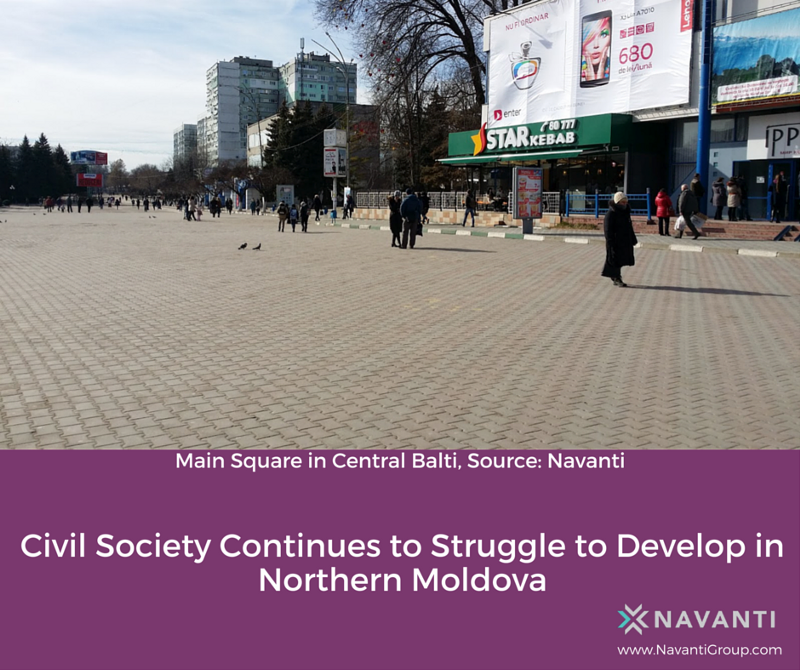Civil Society Continues to Struggle to Develop in Northern Moldova

Despite large-scale protests in Moldova’s capital, Chisinau, in the last six months, the country continues to struggle to develop a vibrant civil society — a problem that is intensified in smaller regional cities.
In Balti, the largest city in northern Moldova, residents speak of widespread civic disengagement. “I don’t know of any engaged citizens or community leaders where I live or where I work,” remarks a bartender, 23, female, “The [Orthodox] church has bigger public services during holidays, but nothing other than that.”
Ongoing economic difficulties in Moldova, the poorest country in Europe, contribute to the problem as well. Regular work migration to Russia and the European Union take many people out of their communities for months out of the year, while high levels of domestic unemployment can leave individuals feeling disconnected. “I’ve been unemployed for three months and mostly just stay at home. I follow politics on television, but I don’t know of any local organizations,” remarks a businessman, 55, male.
The city’s layout, moreover, largely inherited from Soviet times, offers few spaces for groups larger than a family but smaller than a parade. “I go to parks with my family, although they’re not well maintained. If we want to have a nicer time, we just go to Iasi [in Romania],” linguist, 38, female.
Still, groups with a broader sense of purpose remain active in Balti. Although it remains a minority, the local Baptist church is well known among locals for its vocational classes, charity, and outreach to the community. While Balti’s Baptists are likely to remain a distinct community within Balti, they could provide a model for other groups hoping to become more engaged in the future.

